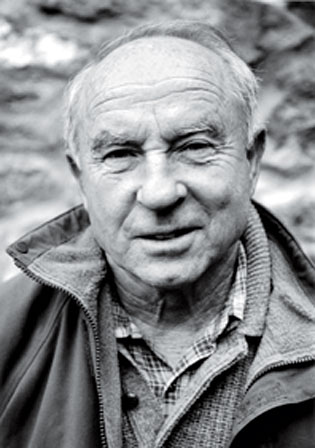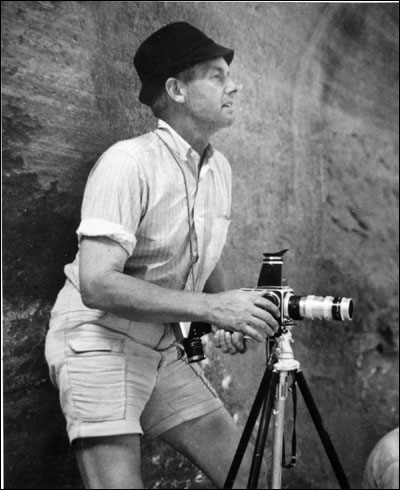
glen canyon instituteDedicated to the restoration of Glen Canyon and a free flowing Colorado River.
GCI
The David R. Brower Conservation Award
The David R. Brower Conservation Award is one of the nation’s most prestigious environmental awards. From its inception in 1998, the award has honored individuals who have had a dramatic, positive impact on conservation efforts in the Colorado Plateau region. Award recipients have come from a wide range of backgrounds, from the arts to the sciences, from communications to activism, and from backcountry exploration to governmental policy. Consistent with Mr. Brower’s request, award recipients must be eloquent in expressing their vision, passionate about their work, and unrelenting in their protection of the environment. David Brower was alive to present the first two awards.
Read more about these award winners below.
Dan Beard. Former Vice President, National Audubon Society and Commissioner, U.S. Bureau of Reclamation. For his tireless efforts to promote strong public policies and programs to protect the Colorado River Basin.
Katie Lee. Writer, photographer, actress, singer, musician. For her unique artistic contributions, which have inspired public appreciation of the beauty of Glen Canyon and public enthusiasm for the restoration of the Glen.
Martin Litton. River runner and environmental activist. For his lifelong conservation leadership, including his crucial role in preventing dams in the Grand Canyon and launching the citizen movement against Glen Canyon Dam.
Ken Sleight. Pioneering wilderness guide and protection advocate. For his introduction of numerous people to the wonders of Glen Canyon on countless river trips, visionary efforts to halt the construction of Glen Canyon Dam, and passionate advocacy for the restoration of the Glen.
Jim Stiles. Publisher, Canyon Country Zephyr. For his outstanding journalistic coverage of the issues of the Colorado Plateau and his forceful defense of the region’s natural values.
Kent Frost. Wilderness guide. For his extensive exploration of the Colorado Plateau and many decades of helping Americans to explore, appreciate, and work to protect the region’s wilderness.
Phil and Keturah Pennington. Early Glen Canyon explorers. For their images and stories that were critical in helping to ignite the modern movement to restore Glen Canyon.
George Miller. U.S. Congressman, California. For his leadership and vision in working for the protection of the natural resources of the western United States. Click here to see video of Congressman Miller’s keynote address.
Terry Tempest Williams. Distinguished writer, naturalist and conservationist. For her love for the Colorado Plateau and her commitment to its preservation. Terry has been a driving force in the environmental movement. Click here to see video of Ms. Williams’ acceptance speech.
Yvon Chouinard. Founder of Patagonia Inc. and dedicated rock climber, surfer, kayaker, and conservationist. For his life-long commitment to the protection of wild nature, in particular his support for the removal of dams around the world, and his leadership in promoting environmentally sustainable business.
Bill Wolverton. Former National Park Service who worked for the better part of 40 years cleaning the Escalante River corridor of Russian Olive. He also has aided in understanding how Glen Canyon can restore through his decades of photographic evidence of how the landscape changes over time.
David Brower Centennial Celebration

Celebrating the 100th Anniversary of David Brower
On Friday, May 25th, at the new Natural History Museum of Utah, Glen Canyon Institute celebrated the 100th anniversary of David Brower’s birth by presenting the prestigious David R. Brower Conservation Award to Patagonia founder Yvon Chouinard. At the event, GCI displayed a number of never-before-seen photos of Glen Canyon taken by David Brower himself.
The ceremony was kicked off with David Brower’s daughter, Barbara Brower, who recalled childhood memories of outdoor excursions and protests with her father. Dave Wegner, Staff Director of U.S. House of Representatives Water and Power Subcommittee and friend of Brower, continued by talking about Brower’s influence on the environmental movement. Brower is credited with founding several major environmental groups such as Earth Island Institute, the League of Conservation Voters, and Friends of the Earth, and he also helped to found Glen Canyon Institute.

GCI president Richard Ingebretsen spoke about David Brower and his role as the leader of the Sierra Club. During his 17-year tenure as the organization’s executive director, Brower led a successful fight against a proposed dam in Dinosaur National Monument and two proposed dams in Grand Canyon. He later went on to initiate the movement to restore the Colorado River through Glen Canyon. Rich also related some of his personal experiences with Brower, in the early days of Glen Canyon Inst
The ceremony concluded with a captivating speech by Patagonia founder Yvon Chouinard, who was presented with the David R. Brower Conservation Award. Chouinard is an avid rock climber, kayaker and surfer, as well as conservationist, environmentalist, and outdoor industry businessman who has been particularly outspoken against dams and river impoundment.itute.
Chouinard talked about his roots as a climber in Yosemite — building his own climbing gear that was more expensive, but had less impact on climbing routes. A pioneer of his time, Chouinard drew a lot of influence from previous climbers and conservationists like John Muir.
Upon receiving the Brower Award, Chouinard made a call to action for the public to become active citizens and not just consumers. As the leader of one of the most successful clothing companies in the world, he has revolutionized the role companies play in conservation and the protection of wild places. He concluded his speech by calling for the restoration of the Colorado River through Glen Canyon.

About David Brower
David Ross Brower was born in Berkeley, California on July 1, 1912. In the late 1930s, Brower began a career that had a profound impact on America’s wild lands, serving on the Sierra Club board of directors and as the organization’s first executive director from 1952 to 1969. It was in these and other roles that Brower played a significant role in protecting our national parks system from dams and reservoirs. As a first major accomplishment, Brower successfully led the fight to prevent a dam at Dinosaur National Monument on the Upper Colorado River. In an effort to preserve that place and our National Park system as a whole, however, he agreed to allow a dam and reservoir to be built in lesser-known Glen Canyon.
After his compromise, Mr. Brower took a trip through Glen Canyon. When he saw this spectacular landscape, he was appalled by the idea that it would be flooded under the depths of a stagnant reservoir. He worked hard to stop Glen Canyon Dam from being completed and was only a few feet from the desk of decision makers the day the gates on the dam were closed. Nevertheless, his efforts fell short. He later declared that drowning Glen Canyon was “America’s most regretted environmental mistake.”
Together with Eliot Porter and the Sierra Club, Brower published the book, The Place No One Knew, as a testimony to Glen Canyon’s unparalleled beauty and a reminder of the value of wild and natural places. In 1996, David Brower joined the board of the fledgling Glen Canyon Institute and in 1998, was awarded the Blue Planet Prize for environmental accomplishments. He used part of the prize money to help the still-young Glen Canyon Institute develop and work toward its stated mission to restore a free-flowing Colorado River through Glen and Grand Canyons. David Brower never forgot the importance and splendor of Glen Canyon, the heart of the Colorado River, and remained a strong supporter of draining Lake Powell Reservoir and restoring Glen Canyon for the rest of his life.
Since its founding, Glen Canyon Institute has been educating the public and decision makers, advocating science-based public policy, and organizing positive citizen activism. As a result, the idea of restoring Glen Canyon has generated broad public discussion and attracted the support of a growing number of members and activists from across the United States and beyond.
Click here to read a short biography.
Click here to read an article by Yvon Chouinard on dams and their consequences.